Resources
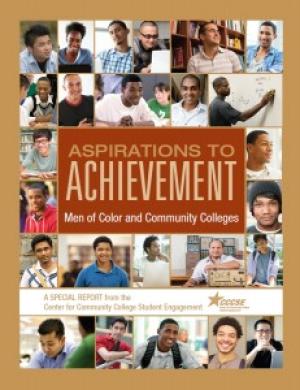
This report shares data related to readiness, student engagement, performance, and the achievement gap. The experience of stereotype threat is addressed and heard from the voices of students.  
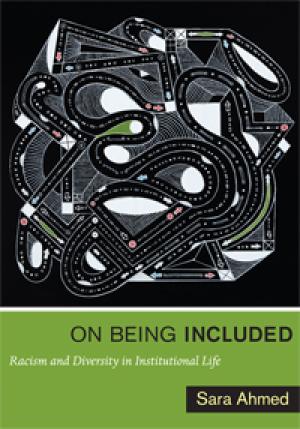
Click Here for Book Review Abstract: What does diversity do? What are we doing when we use the language of diversity? Sara Ahmed offers an account of the diversity world based on interviews with diversity practitioners in higher education, as well as her own experience of doing diversity work. Diversity is an ordinary, even unremarkable, feature of institutional life. Yet diversity practitioners often experience institutions as resistant to their work, as captured through their use of the metaphor of the "brick wall." On Being Included offers an explanation of this apparent paradox. It explores the gap between symbolic commitments to diversity and the experience of those who embody diversity. Commitments to diversity are understood as "non-performatives" that do not bring about what they name. The book provides an account of institutional whiteness and shows how racism can be obscured by the institutionalization of diversity. Diversity is used as evidence that institutions do not have a problem with racism. On Being Included offers a critique of what happens when diversity is offered as a solution. It also shows how diversity workers generate knowledge of institutions in attempting to transform them. (From the Publisher)

Click Here for Book Review Abstract: First book to offer a survey of pedagogical listening in conventional and alternative methodologies. What happens when teachers step back from didactic talk and begin to listen to their students? After decades of neglect, we are currently witnessing a surge of interest in this question. Listening to Teach features the leading voices in the recent discussion of listening in education. These contributors focus close attention on the key role of teachers as they move away from didactic talk and begin to devise innovative pedagogical strategies that encourage active listening by teachers and also cultivate active listening skills in learners. Twelve teaching approaches are explored, from Reggio Emilia’s project method and Paulo Freire’s pedagogy of the oppressed to experiential learning and philosophy for children. Each chapter offers a brief explanation of one of these approaches—its background, the problems it aims to resolve, the educators who have pioneered it, and its treatment of listening. The chapters conclude with ideas and suggestions drawn from these pedagogies that may be useful to classroom teachers. (From the Publisher)
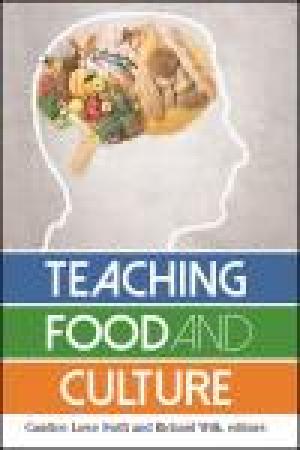
With the rapid growth and interest in food studies around the U.S. and globally, the original essays in this one-of-a-kind volume aid instructors in expanding their teaching to include both the "Teaching Food and Culture offers exciting, innovative pedagogical approaches to topics across the spectrum of the anthropology of food. Firmly grounded in the authors’ respective specialisms, collectively these chapters demonstrate the vital importance in the study of food of connecting multiple perspectives, theories and methods. The volume will be an indispensable resource for teachers in the anthropology of food and food studies. " - Jakob Klein, Department of Anthropology and Food Studies Centre, SOAS, University of London "As Food Studies courses multiply and growing numbers of students are eager to reflect critically on all things food, this book offers stimulating ideas for topics, readings, and assignments to instructors, both veterans and new to the field. The editors have gathered thoughtful contributions that reach out well beyond anthropology, providing useful pedagogical tools to all those who want to teach about contemporary society with and through food. " - Fabio Parasecoli, The New School latest scholarship and engage with public debate around issues related to food. The chapters represent the product of original efforts to develop ways to teach both with and about food in the classroom, written by innovative instructors who have successfully done so. It would appeal to community college and university instructors in anthropology and social science disciplines who currently teach or want to develop food-related courses. This book illustrates the creative ways that college instructors have tackled teaching about food and used food as an instructional device; aims to train the next generation of food scholars to deal with the complex problems of feeding an ever-increasing population; contains an interview with Sidney Mintz, the most influential anthropologist shaping the study of food. (From the Publisher)
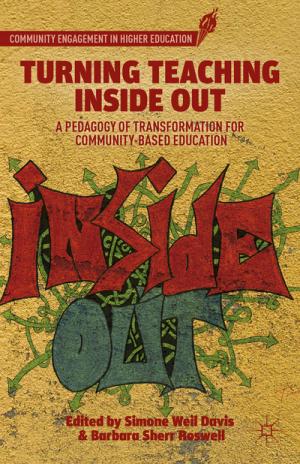
Click Here for Book Review Abstract: The Inside-Out Prison Exchange Program brings campus-enrolled and incarcerated students together as classmates in postsecondary courses built around dialogue, collaboration, and experiential learning. Contributors to this book consider the broader lessons that Inside-Out provides for community-based learning praxis, prison education and postsecondary teaching in general, both on campus and in community settings. An international network of practitioner-scholars probe the challenges and contradictions inherent in community-based work, but especially charged in the prison setting: the intersections of race, class and gender, and the tensions between teaching and activism, evaluation and advocacy, and compromise with and resistance to oppressive and dehumanizing systems. At a time when many in the Academy are seeking to deepen the impact of the community-based learning initiatives on their campuses, Turning Teaching Inside Out offers a model. (From the Publisher)

Teaching Information Literacy Threshold Concepts: Lesson Plans for Librarians is a collection designed by instruction librarians to promote critical thinking and engaged learning. It provides teaching librarians detailed, ready-to-use, and easily adaptable lesson ideas to help students understand and be transformed by information literacy threshold concepts. The lessons in this book, created by teaching librarians across the country, are categorized according to the six information literacy frames identified in the ACRL Framework for Information Literacy in Higher Education (2015). This volume offers concrete and specific ways of teaching the threshold concepts that are central to the ACRL Framework and is suitable for all types of academic libraries, high school libraries, as well as a pedagogical tool for library and information schools. (From the Publisher)
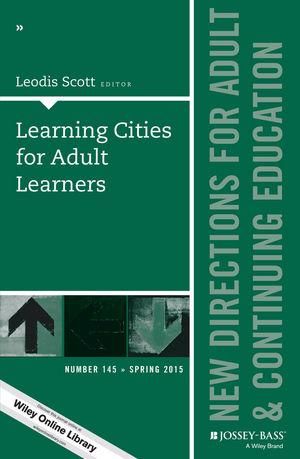
Click Here for Book Review Abstract: Learning cities call for a connection of adult education to elementary, secondary, and postsecondary institutions along with vocational and corporate workspaces. This volume considers how “learning cities for adult learners” could be created in America that promote lifelong learning and education. Encouraging a widespread approach to educate and learn across disciplines, within communities, and inside the minds of all people, topics covered include: • workplace and organizational learning, • community engagement and service learning, • public libraries and cooperative extension, and • leisure, recreation, and public health education. This is the 145th volume of the Jossey Bass series New Directions for Adult and Continuing Education. Noted for its depth of coverage, it explores issues of common interest to instructors, administrators, counselors, and policymakers in a broad range of education settings, such as colleges and universities, extension programs, businesses, libraries, and museums. (From the Publisher)
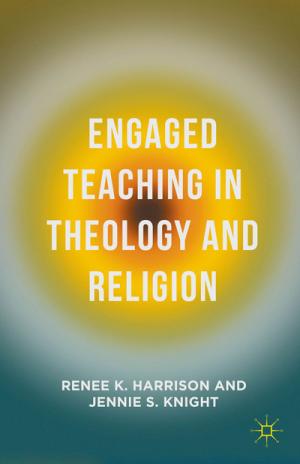
Click Here for Book Review Abstract: The goal of Engaged Teaching in Theology and Religion is to guide a process of self-reflection for scholars and teachers of theology and religion that leads to intentional, transformative teaching, dialogue, and reform in theological education and religious studies. Effective teaching approaches must address the selfhood of the teacher, as well as pedagogy, course content, and community engagement. This book sets itself apart from other works in the field because of this holistic approach. In addition to addressing these four areas, Harrison and Knight provide a variety of practices for teaching that take seriously students' cries for a more socially and personally relevant pedagogy and curriculum in a rapidly changing transnational world. The volume provides a well-reasoned and accessible re-thinking of teaching theology and religion so that schools of theology and departments of religion might better live out their stated goals of forming transformative, courageous, and thoughtful leaders and teachers in the twenty-first century. (From the Publisher)
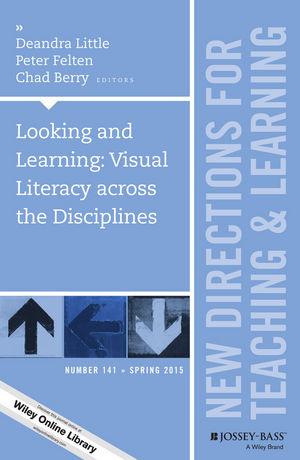
Click Here for Book Review Abstract: In this volume, the authors focus on the importance of inclusive teaching and the role faculty can play in helping students achieve, though not necessarily in the same way. To teach with a focus on inclusion means to believe that every person has the ability to learn. It means that most individuals want to learn, to improve their ability to better understand the world in which they live, and to be able to navigate their pathways of life. This volume includes the following topics: - best practices for teaching students with social, economic, gender, or ethnic differences - adjustments to the teaching and learning process to focus on inclusion - strategies for teaching that help learners connect what they know with the information presented - environments that maximize learners’ academic and social growth. The premise of inclusive teaching works to demonstrate that all people can and do learn. Educators and administrators can incorporate the techniques of inclusive learning and help learners retain more information. This is the 141st volume of the quarterly Jossey-Bass higher education series New Directions for Teaching and Learning. It offers a comprehensive range of ideas and techniques for improving college teaching based on the experience of seasoned instructors and the latest findings of educational and psychological researchers. (From the Publisher)
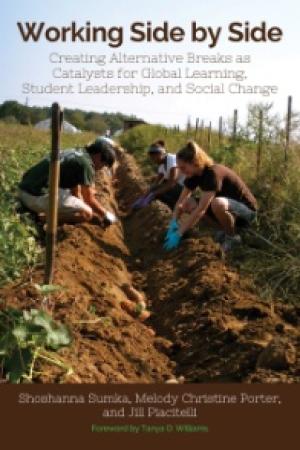
Click Here for Book Review Abstract: This book constitutes a guide for student and staff leaders in alternative break (and other community engagement, both domestic and international) programs, offering practical advice, outlining effective program components and practices, and presenting the underlying community engagement and global learning theory. Readers will gain practical skills for implementing each of the eight components of a quality alternative break program developed by Break Away, the national alternative break organization. The book advances the field of student-led alternative breaks by identifying the core components of successful programs that develop active citizens. It demonstrates how to address complex social issues, encourage structural analysis of societal inequities, foster volunteer transformation, and identify methods of work in mutually beneficial partnerships. It emphasizes the importance of integrating a justice-centered foundation throughout alternative break programs to complement direct service activities, and promotes long-term work for justice and student transformation by offering strategies for post-travel reorientation and continuing engagement. The authors address student leadership development, issue-focused education, questions of power, privilege, and diversity, and the challenges of working in reciprocal partnerships with community organizations. They offer guidance on fundraising, budget management, student recruitment, program structures, the nuts and bolts of planning a trip, risk management, health and safety, and assessment and evaluation. They address the complexities of international service-learning and developing partnerships with grassroots community groups, non-governmental and nonprofit organizations, and intermediary organizations. For new programs, this book provides a starting point and resource to return to with each stage of development. For established programs, it offers a theoretical framework to reflect on and renew practices for creating active citizens and working for justice. (From the Publisher)